
The Plastic Challenge
Plastic pollution is a significant urban challenge the world faces today. More than half of the world's population lives in cities, which is expected to rise to 70 percent by 2050. Strengthening institutional capacity is crucial to responding to this challenge for a transition to more equitable, inclusive, and sustainable cities.
In Pakistan, the number of plastic bags used exceeded 55 billion in 2018, which is expected to increase by 15% annually. The government slapped a ban to curb single-use plastic bags in 2019, but the consumption of single-use plastic bags is still widespread. Given the limited resources at the government's disposal, more effective policies are needed to ensure compliance with environmental regulations.
About the project
This project aims to provide evidence of the effectiveness of enforcement measures and environmental nudges in generating plastic bag compliance behavior. To ensure that our research has maximum policy impact, we have engaged with various stakeholders including academia, Environmental Protection Agency (EPA-PAK), Sustainable Development Policy Institute (SDPI), and World Wide Fund for Nature (WWF).
Project Methodology
We have been running a series of randomized control trials to measure the effectiveness of various policy interventions (regulations and nudges) on the compliance behavior of retailers in Islamabad.
We will share project results with relevant institutions, organizations, and individuals through project reports, policy briefs, and key message infographics. The ultimate objective is to support regulators in Pakistan in building more sustainable and resilient cities by better managing plastic pollution.
Message from Rector and Director
Message from Rector and Director
GCF-860 Documentary
Newspaper / Research Articles
-
Apt waste management
Dr. Muhammad Khan | February 9, 2025
-
Dr. Muhammad Khan (the Principal Investigator of the project) participated in 10th International Conference on Social sciences, Humanities and Education (ICSHE)”
-
Rafi Amir-ud-Din, Amina Farheen, Muhammad Khan, and Rao Muhammad Atif presented their research "Between Prosperity and Planet: Assessing Religious Impact on Economics and Environmental Preferences in 64 Countries"
-
Dr. Muhammad Khan and his team participated in high level policy seminar on Environmental Conflict and Social Dialogue in Pakistan
-
Role of Nudges and Enforcement to Reduce Plastic Bag Usage.
-
Plastic Solution
-
Policy Brief-Enforcement, Nudges and theiry combination to reduce plastic bag usage
-
Unchecked single-use persistence: Islamabad retailers’ defiance of the plastic bag prohibition
Muhammad Khan, Rafi Amir-ud-Din, Rao Muhammad Atif | 2024
-
Behavioral insights into reusable bag adoption: Evaluating the effectiveness of the theory of planned behavior in Lahore Published in Journal of Infrastructure, Policy and Development
Rao Muhammad Atif, Faraz Ahmad, Muhammad Khan, Rafi Amir-ud-Din | 2024
-
The plastic bag ban
Dr Rafi Amir-ud-Din | June 16, 2024
-
Adopting a circular economy approach
Zahid Majeed | October 13, 2024
-
A policy for plastic bag use
Dr. Muhammad Khan | December 17, 2023
-
پاکستان میں سرمایہ کاری کی صلاحیت کے لیے پلاسٹک سرفہرست ہے،چارلس شنائیڈر
Dr. Muhammad Khan | Nov 23, 2023
-
Plastic should be managed, not banned
Dr. Muhammad Khan | July 16, 2023
-
Combating plastic pollution
Dr. Muhammad Khan | May 21, 2023
-
The plastic challenge needs circular solutions
Dr. Muhammad Khan | 7 21, 2023
-
How to stop plastic bag use on Oct 07, 2022
Dr. Muhammad Khan | April 16, 2023
News - Downloads
-
-
-
-
-
-
-
-
-
-
-
-
-
-
-
-
-
Meet the team
Dr. Muhammad Khan (Principal Investigator)
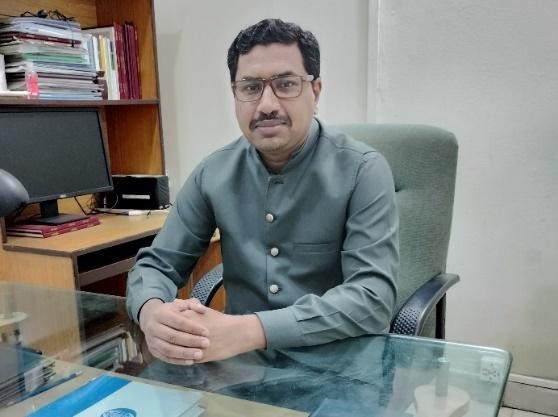
Dr. Muhammad Khan is a Tenured Associate Professor at the Department of Economics, CUI Lahore. His research interests lie in Environmental Economics, Labor Economics, and Health Economics. Drawing insights from behavioral economics, his recent research focuses on solutions to environmental problems using experimental designs. He received several research competitive grants from national and international funding agencies including Higher Education Commission (HEC) Pakistan, COMSATS University Islamabad, International Food Policy Research Institute (IFPRI), South Asian Network for Development and Environmental Economics (SANDEE) and USAID. He also received Best Researcher Award from COMSATS University Islamabad in 2017.
Mob: +92-3345329015
Email: mkhan@cuilahore.edu.pk
Dr. Rafi Amir-ud-Din (Co- Investigator)
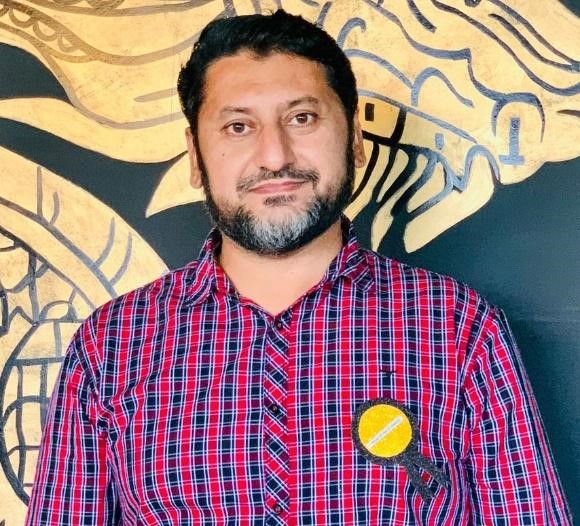
Dr. Rafi Amir-ud-Din is an Associate Professor (Tenured) in the Department of Economics, COMSATS University, Islamabad (Lahore Campus). He holds a Ph.D. in Economics from International Islamic University, Islamabad. His research interests focus on poverty (alternative conceptualizations of well-being and ill-being), education (environmental variability and schooling outcomes), public health (malnutrition and mortality), the economic dimension of gender-based violence (domestic violence), and energy efficiency. He has published in top-ranking journals such as Energy, Journal of Interpersonal Violence, The American Journal of Tropical Medicine and Hygiene, and BMJ Open. He also routinely peer-reviews for several journals, including The Lancet Regional Health. He is also a member of the Editorial Board of PlosOne. He has won several prestigious research grants, including HEC's Research Grant Program (TRGP), National Research Program for Universities (NRPU), Grand Challenge Fund, and a research grant from SANDEE (the last two as Co-PI). He is a member of the Advisory Board of IPUMS DHS. He is also a member of the American Economic Association. He regularly contributes his columns to "The News" and conducts hands-on data analysis workshops routinely.
Dr. Rao Muhammad Atif (Co-Investigator)
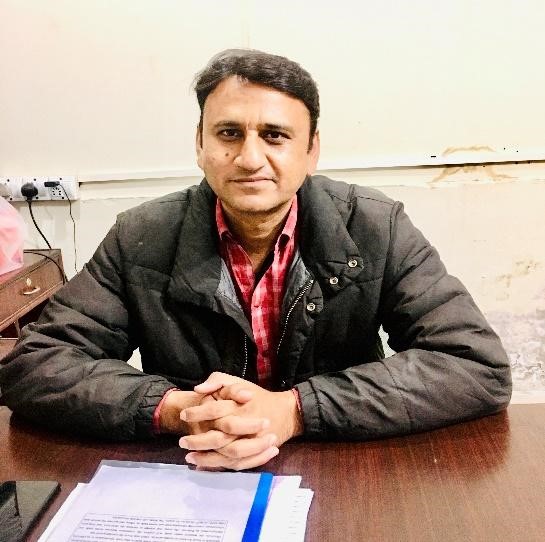
Dr. Rao Muhammad Atif is working as Assistant Professor in the department of Economics, COMSATS University Islamabad, Lahore Campus. His research in international trade emphasizes the role of tariff and non-tariff trade barriers on exports efficiency. In addition, he is also working on firm-level determinants of exports, especially the relationship between firm productivity and the domestic political and economic environment. More recently, he has been working on the role of financial sector development on the environment.
Project Staff
Dr. Kashif Muhmood (Research Associate/Assistant Professor)
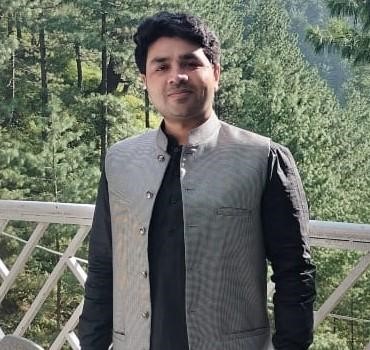
Dr. Kashif Muhmood did his Ph.D in Business Administration from Daegu University, South Korea. Currently he is serving as a Research Associate/Assistant Professor in the department of Economics, Comsats University Islamabad, Lahore Campus. Before joining this institute, Dr. Muhmood has served as Assistant Professor in the department of Management Sciences, Virtual University of Pakistan from April, 2019 to January 2022. His research interest lies in areas of Consumer behavior, Behavioral Economics and Strategic Marketing. He has published 5 articles in peer reviewed and impact factor journals.
Ms. Saima Noureen (Project Coordinator/Research Analyst)
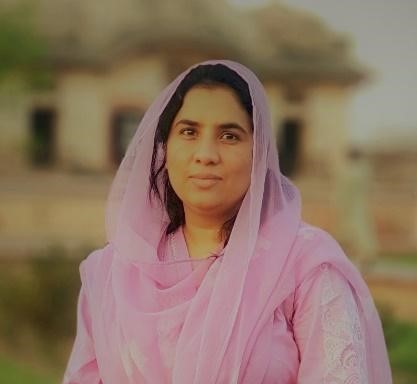
Ms. Saima did M.Phil in Economics from COMSATS University Lahore Campus. She is a Research Analyst (equivalent to lecturer) in the Project. She manages and coordinates project activities. Her research interests include labor economics and environmental economics.
Mr. Muhammad Imran Javed (Research Analyst)
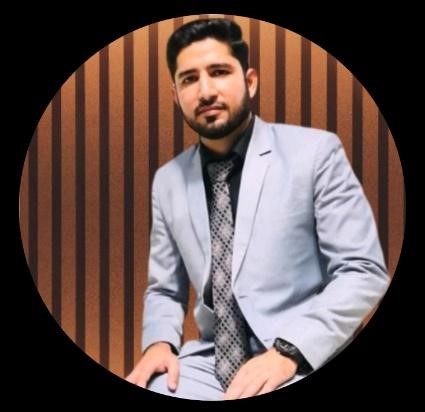
Mr. Muhammad Imran Javed is working as a research analyst in the project. He did MS Economics from COMSATS University Islamabad, Lahore Campus. Previously he has Worked as a lecturer at University of Lahore. He good command on data analyses software. He has published 3 research papers in local and international journals.
Mr. Muhammad Muzammil (Research Analyst)
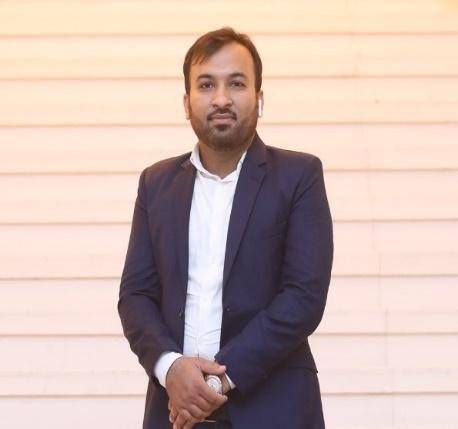
Hi, I am Muhammad Muzammil working as a Research Analyst at CUI Lahore. Previously I served in many reputed organizations such as Education University, Lahore School of Economics, Transsion Holding, Tevta Secretariat, and Al Majeed Ibrahim Industry. I have a strong background in research & data analysis and published research papers in reputed journals.
Mr. Muhammad Faraz (Research Assistant)

Mr. Faraz Ahmed is pursuing his Master's degree in Economics from COMSATS University Islamabad, Lahore Campus. In addition to his academic pursuits, Faraz is also working as a research assistant in the project.
Thesis : Behavioral Insights into Reusable Bag Adoption: Evaluating the Effectiveness of the Theory of Planned Behavior in Lahore
Ms. Robina Ahmed (Research Assistant)
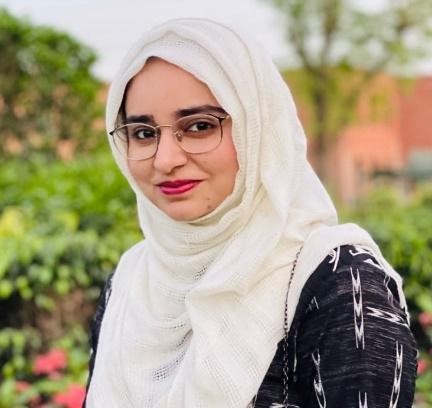
My name is Robina Ahmad. I have done my BS Economics from University of the Punjab. I am doing masters in economics from COMSATS University Lahore campus. Now I am working as a research assistant in the project..
Thesis : Nudges to Curb Single-Use Plastic: An Experimental Evidence from University Cafeteria
Ms. Saliha (Research Assistant)
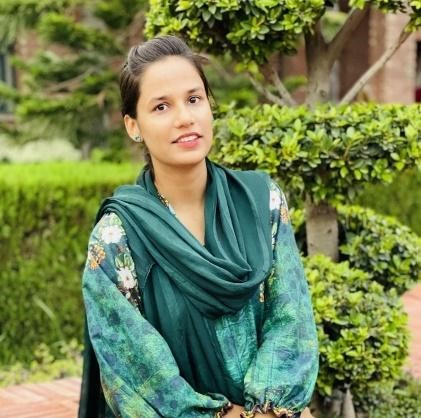
My name is Saliha Khalid. I graduated from COMSATS University Islamabad Lahore campus. Now I am doing masters in economics from the COMSATS Lahore and working as a research assistant in the project.
Thesis : Analyzing the Environmental Impact of Plastic Bag Regulations: A Panel Data Study on PM2.5 Levels
Mr. Zahid Majeed (Research Assistant)
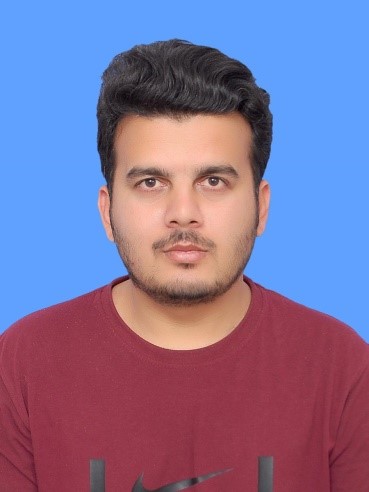
Mr. Zahid Majeed has received Master Philosophy (M.Phil.) degree in Environmental Economics from Pakistan Institute of Development Economics. He is currently working as a Research Associate at COMSATS University Lahore-Campus under GCF-860. He also holds Bachelor of Sciences (BS) four- year degree in Environmental Sciences. His research interests include Environmental Protection, Climate Finance, Green Banking, Climate Informed Fiscal Planning, Sustainable Energy Development, Green Energy Development Road Map of Pakistan.
Ms. Zainish Abbas (Research Assistant)
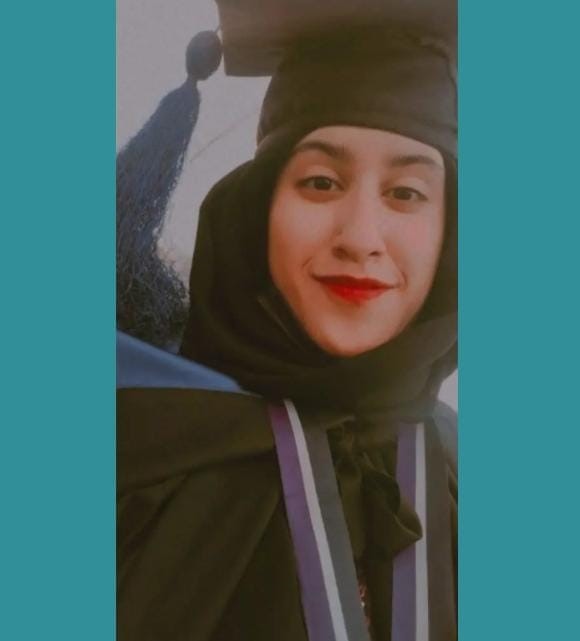
Ms. Zainish Abbas is a dedicated graduate of CUI, where she earned her Bachelor's degree and received the prestigious Gold Medal for academic excellence. Currently pursuing her MS in Economics at COMSATS, Zainish is also working as a Research Assistant on the project.
Title: Bottled Water: Do Behavioral Interventions and Environmental Awareness Affect Students' Choices for Reusable Water Bottles Supervisor: Dr. Muhammad Khan
Mr. Ammar Ather (Research Assistant)

I am Ammar Ather. I have done my bachelor's from FCCU, Lahore. Currently I am doing my Masters in Economics from COMSATS university Lahore Campus. I am also a Research Assistant pertaining to GCF project.
Title:"Do Plastic-related Regulatory Measures Reduce Ecological Deficit" Supervisor name: Dr. Rafi Amir-ud-Din
Ms. Amina Farheen (Research Assistant)
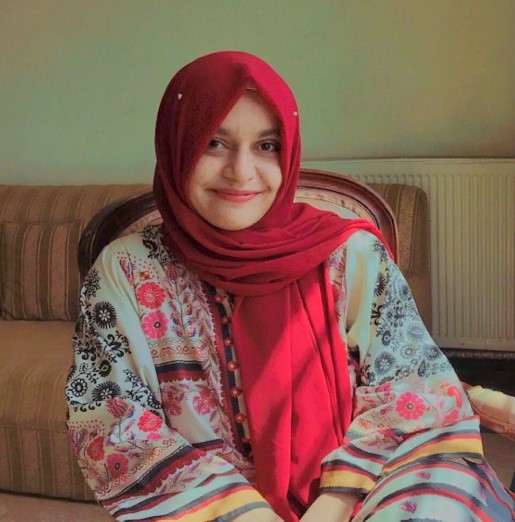
Ms. Amina Farheen is working as a research assistant in the project. She is pursuing her Master’s degree in Economics from COMSATS University Islamabad, Lahore Campus. She did her Bachelor’s degree in Economics from International Islamic University Islamabad
Title: Between Prosperity and Planet: Assessing Religious Impacts on Economic and Environmental Preferences in 64 Countries Supervisor: Dr. Rafi Amir Ud Din
MrMirza Khawar Baig (Research Assistant)

Mirza Khawar Baig is currently pursuing his Ph.D. in Economics from CUI Lahore, focusing on Environmental Economics. He is a seasoned corporate professional with degrees in MS Economics, M.Sc. Environmental Sciences, and an MBA. With extensive experience in the corporate sector, he has been involved in over 100 projects of varying scales, including business research and analytics. He has also earned multiple professional certifications such as PMP®, IBM-CSM, Google Data Analytics Specialist, and Lead Auditor ISO 9000.
Ms.Khadija Zulfiquar (Research Assistant)

Khadija Zulfiquar has done M.Phil in Economics from University of Agriculture, Faisalabad with research on the economics of safe drinking water. She is pursuing her PhD in Economics from COMSATS University Lahore Campus and also serving as Research Assistant in the Managing Plastic Pollution Project. Khadija is committed to expanding her expertise and contributing to academic and economic advancements.
Ms.Tayyeba Rasheed (Research Assistant)
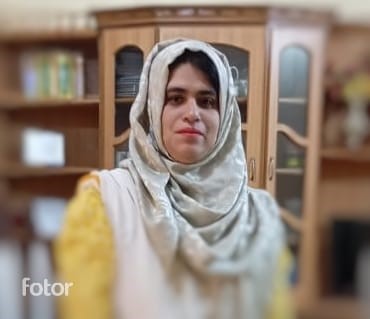
Miss Tayyeba Rasheed holds the degree of Master in economics from Punjab University Lahore and currently pursuing MS in economics from COMSATS University Lahore Campus. She is also working as a research assistant in the project GCF-860. Her research interest lies in Environmental Economics. She intends to study how media communication can help in reducing plastic consumption.
